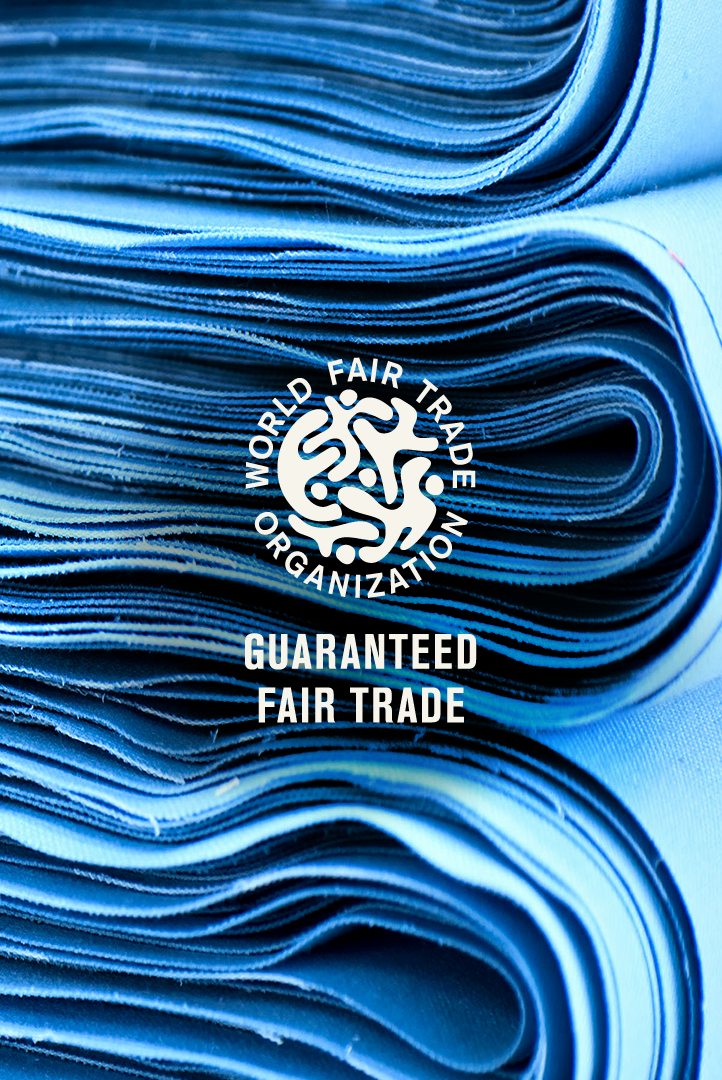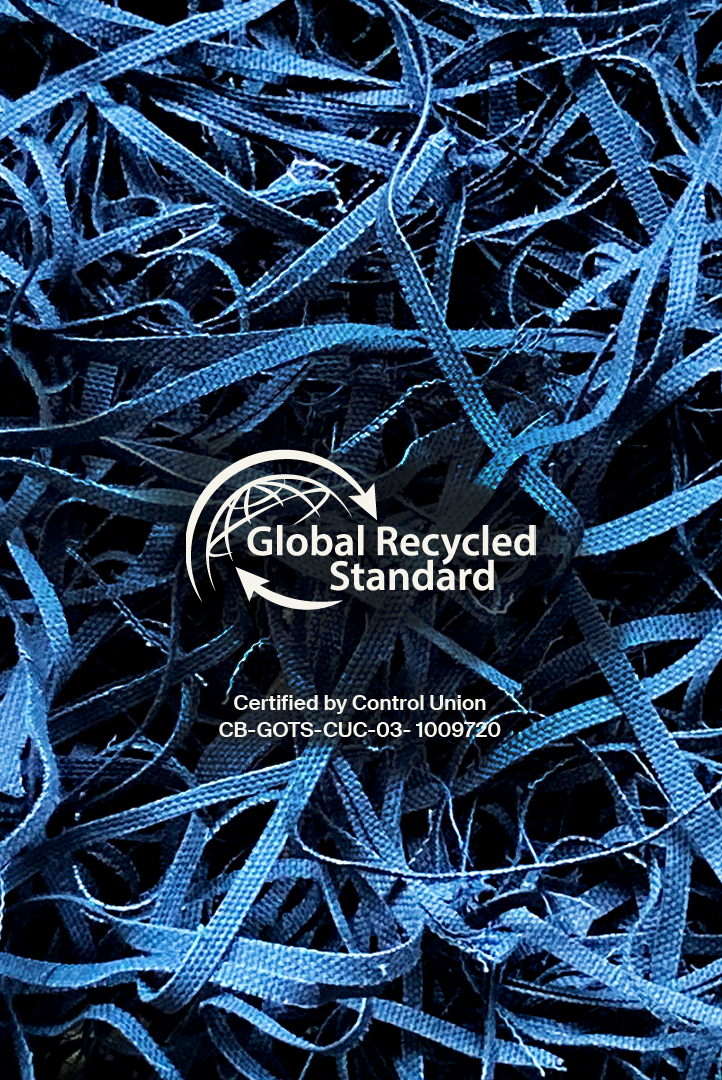materials
certifications
processes
our farmer case study
our materials
100% organic cotton
Environmental Benefits
Eliminates synthetic chemicals: Organic farming avoids the use of pesticides and synthetic fertilizers, helping protect soil, water sources, and surrounding ecosystems.
Conserves water: Healthier soils with higher organic matter improve water retention, and many organic systems rely more on rainwater than irrigation.
Reduces carbon footprint: By eliminating energy-intensive chemical inputs and improving soil health, organic systems contribute to lower greenhouse gas emissions.
Supports biodiversity: Diverse farming practices and the absence of toxic chemicals provide safer habitats for pollinators, birds, and wildlife.
Farmer and Community Benefits
Protects farmer health: Workers are not exposed to hazardous agrochemicals, reducing health risks.
Strengthens livelihoods: Organic cotton often commands a premium price, and lower input costs reduce farmers’ dependence on external suppliers.
Builds resilient soils: Crop rotations, composting, and other organic practices enhance soil fertility and long-term productivity, safeguarding future harvests.
Consumer Benefits
Healthier textiles: Organic cotton clothing and fabrics carry minimal chemical residues.
High quality: Fibers grown under organic systems are often stronger, softer, and longer-lasting, resulting in durable textiles.
100% recycled cotton
short bio about recycled and then directing uses to recycled page
WFTO
Certifications
GOTS
GRS
processes
-

on-site printing facility
This year we expanded our in-house printing facility at our Mysore creation unit, which means that most of our tote bags are now printed on site. This in-house investment allows us to reduce the carbon footprint of our product. We now offer manual screen printing at the same bright and airy site where our bags are cut and sewn. This exciting development provides livelihood and skilling for a team of 20 artisans.
We have also invested in a water treatment facility, which allows us to operate a closed water system. Any discharged clean, treated water is used to grow plants in our creation unit garden, which has the added benefit of recharging the groundwater (a critical resource in India).
-

our commitment to clean energy
Our offices in Bangalore and creation units in Mysore and Gumballi are all fitted with solar panels, which we use to generate our electricity.
Our new office space in London uses 100% renewable energy. Environmental impact was a significant consideration when looking for our energy efficient new base.
At re-wrap we aim to use the earth’s resources respectfully, always mindful of the environmental footprint we generate while creating our product and supporting our people.
-

3d sampling technology
We embrace 3D technology to reduce our carbon impact. This innovative technology allows us to minimise waste from excess fabric sampling and reduce the carbon emissions associated with courier shipping.





